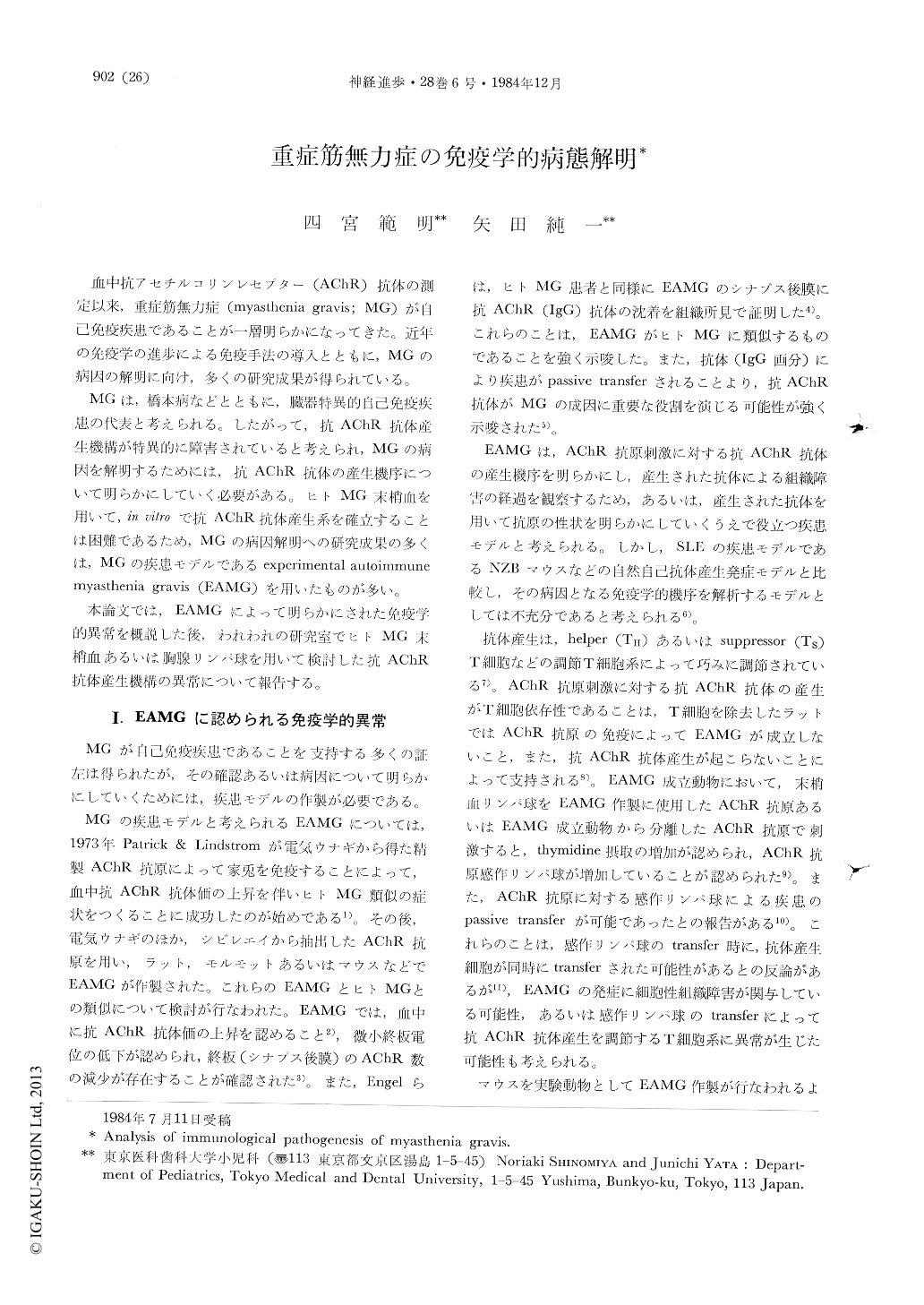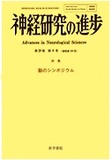Japanese
English
- 有料閲覧
- Abstract 文献概要
- 1ページ目 Look Inside
血中抗アセチルコリンレセプター(AChR)抗体の測定以来,重症筋無力症(myasthenia gravis;MG)が自己免疫疾患であることが一層明らかになってきた。近年の免疫学の進歩による免疫手法の導入とともに,MGの病因の解明に向け,多くの研究成果が得られている。
MGは,橋本病などとともに,臓器特異的自己免疫疾患の代表と考えられる。したがって,抗AChR抗体産生機構が特異的に障害されていると考えられ,MGの病因を解明するためには,抗AChR抗体の産生機序について明らかにしていく必要がある。ヒトMG末梢血を用いて,in vitroで抗AChR抗体産生系を確立することは困難であるため,MGの病因解明への研究成果の多くは,MGの疾患モデルであるexperimental autoimmune myasthenia gravis(EAMG)を用いたものが多い。
Abstract
Myasthenia gravis (MG) is a disease caused by a defect in the neuromuscular transmission by acetylcholine. Antiacetylcholine receptor (AChR) antibodies were detected in the sera of myasthenic patients and experimental model of MG was induced in animals by the immunization with receptor protein purified from Torped narkc (called experimental autoimmune myasthenia gravis, EAMG). Antibodies against AChR were elicited and physiologic and morphologic features similar to human myasthenia gravis were found in the immunized animals.

Copyright © 1984, Igaku-Shoin Ltd. All rights reserved.


